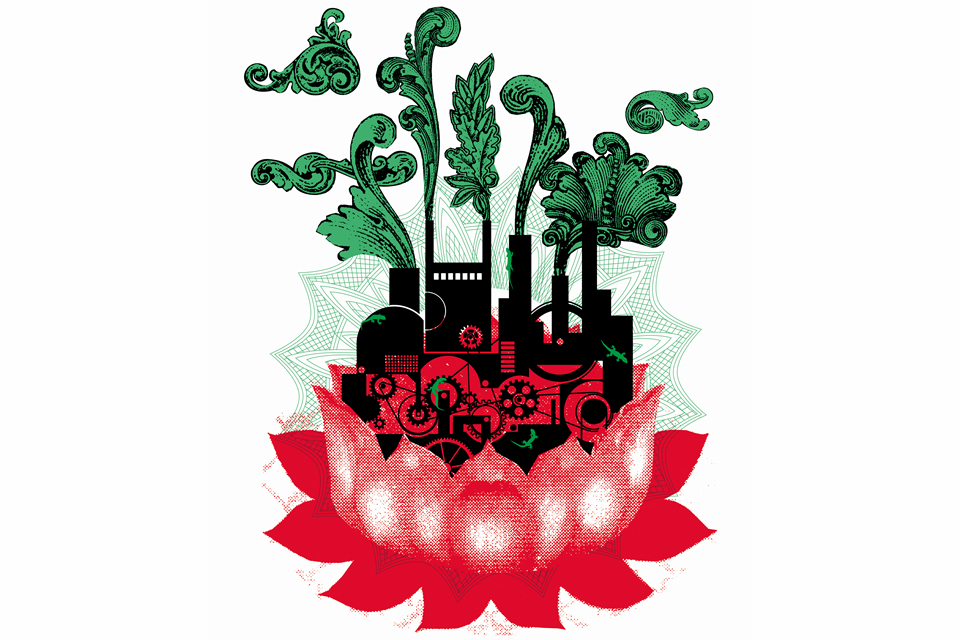
Last year witnessed several record-breaking weather events, many caused by man-made climate change. Coupled with almost three years of coronavirus, this has left many of us reflecting on the impact of human activity on the planet.
As a result, impact investing in the latest developments in renewables is increasing, especially in Asia, with many countries pledging to ‘build back better’ after the pandemic by investing in cutting-edge green technology. To those ends, asset management has transformed, with new regulations in Europe and elsewhere putting ESG higher up the agenda.
With so many new developments happening at seemingly lightning speed, what do high net worth individuals (HNWIs) need to know in order to make informed decisions about sustainable investment opportunities?
Nick Dingemans, Partner at Penningtons Manches Cooper, and colleague and fellow Partner John Zadkovich, based at the firm’s Singapore office, have some indispensable advice for investors in this rapidly evolving world.
Moving the dial
Distinguishing between impact funds and green energy funds is key if you want to use money meaningfully to have a positive net impact on the environment. It boils down to the most essential rule in sustainable investment: due diligence. It’s vital to establish that what you’re investing in is really doing what it’s supposed to be doing. It’s not enough to simply look at a prospectus, you 18need to dig deeper and be forensic – who is verifying the performance metrics? Is there independent monitoring? Where’s the verification?
Dingemans explains: “With green energy, that could just be a rooftop solar installation on a commercial building. Sure, that’s green and sustainable, but is it impactful? Probably not. It’s just reducing the cost of power for the person who put it on their roof. Impact needs to be something that’s really moving the dial.”
Another factor is consumer risk. Dingemans warns: “The reputational damage that can be done by not looking at ESG factors is really high. You need to consider the social and governance elements too, particularly if you’re making investments in emerging markets. What is the impact on local communities? That’s important.”
Zadkovich agrees that it’s imperative to do your research and consult experts: “There are myriad new funds coming up, which have laudable aims. But you need to look beyond that. Some of them might be greenwashing – I’ve seen this first-hand: a ‘sustainable’ project to generate energy in Indonesia through palm oil. But getting there meant decimating thousands of hectares of rainforest.”
Diane Seymour-Williams, Partner at Acorn Capital Advisers, concurs. “You really need to lift up the bonnet to ensure there isn’t any greenwashing going on. You need transparency on how they are making a difference and how they are assessing ESG values, both positive and negative.
“When you look at measurement frameworks, it’s not one-size-fits-all. You need to measure impact at a very granular level.”
What is helpful for prospective sustainable investors, however, is that some protocols already exist. The World Bank and others have criteria to measure the environmental and social impacts (known as the Equator Principles) of a particular investment on local communities, and there are also the UN’s Sustainable Development Goals.
The UN Climate Change Conference in 2021 (COP26) saw the creation of the International Sustainability Standards Board, part of the International Financial Reporting Standards (IFRS), which will mean a consistent accounting measure of sustainability around the world, making it easier for investors. As well as being able to penetrate any greenwashing, it will be a fiscal measure too.
Dingemans and Zadkovich agree that, to create meaningful change, it’s all about the groundwork – consulting with experts and due diligence.
Dingemans gives the example of solar panels: “If you produce solar panels, you’ve got to mine silica. So where’s the silica coming from? You need to look at the entire supply chain and interrogate every part of it. You could be looking at something you understand to be sustainable, but if you don’t look at the whole supply chain and lifecycle, you could end up creating something worse when it comes to ESG metrics.”
Seymour-Williams adds that the onus remains on you as an investor: “You need to do that homework or have an adviser who is going to do that homework for you.”
“ When you look at measurement frameworks, It’s not one-size-fits-all. You need to measure impact at a very granular level.”

ESG Investment endeavours
Despite the greenwashing, real change is underway. Hydrogen, for example, is the focus of considerable investment, with some governments including those in Australia and Indonesia offering great incentives such as subsidies or tax concessions. Zadkovich explains: “Hydrogen is one of the most talked about renewable and sustainable fuels right now, and billions are being invested in it across the world.
“Of course, different markets have different drivers, depending on the availability of the resources. APAC is still largely dependent on fossil fuels, and has an abundance of them, and the US is largely self-sufficient, given its shale reserves. So there’s more green capital available in Europe than there is in APAC or North America.”
Dingemans adds that India is interesting too. “The government decided a few years ago to really push renewables, particularly solar. They have a huge energy demand and though they still build coal-fired power stations, they are creating significant capacity in utility-scale photovoltaic solar power stations.
“They’re doing this because they’ve got lots of land and demand. This gives India the economics and physical space, which means more reliable and long-term projects. With scale the cost comes down. Today the cost of building and operating a utility-scale solar power station, versus building a coal fired power station, is now cheaper. The consequence of the economics is that India has logically been pushed towards a significant build out of renewables.”
He also mentions Indonesia. “It has a massive population, so has huge power demand, but, interestingly, Indonesia has overcapacity of power supply on the islands of Java and Bali, mainly from coal. Essentially, the build out power for security of supply has gone well but is probably in the wrong place. Java and Bali have nearly 180% capacity for current demand. Other parts of the Indonesian archipelago have under capacity.
“So how do you use this capacity? One option, though costly, would be to capture the carbon from these coal-fired power plants and use electricity to create hydrogen from electrolysis, and then blend hydrogen with the captured carbon to make synthetic gas.
“This is the type of project that requires significant capital but does have an impact. It reduces carbon, transitions to a hydrogen economy, and displaces some natural gas with synthetic gas. Over time the coal can be replaced with renewables, the carbon captured through direct air capture and you potentially have a carbon negative power supply.”
Dingemans agrees that Australia is definitely one to watch, with the government looking to rapidly build out solar, hydrogen and other green technologies. He expects Australia to become an exporter of hydrogen to Asian markets, because Japan, Korea and China are all pivoting towards a hydrogen economy.
But Dingemans and Zadkovich’s main takeaway is wherever you choose to put your money, you have to do your research. Due diligence on all aspects of ESG, keeping up with constantly evolving regulations and avoiding greenwashing are vital. In short, get expert advice before you invest if you really want to maximise returns and truly help the planet.
 Back to Edition 3 - The global issue
Back to Edition 3 - The global issue



 Back to Edition 3 - The global issue
Back to Edition 3 - The global issue



